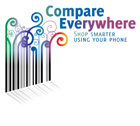 It looks like Google may have made the right move with the Android Developer Challenge after all.
It looks like Google may have made the right move with the Android Developer Challenge after all.
The winners of the first developer challenge, announced this evening, appear polished, well thought out, and ready for the first Android-powered phones to hit the streets in the not-too-distant future.
The Android Developer Challenge provides yet another contrast to Apple and its iPhone. Apple announced a software developers kit (SDK) for the iPhone this spring and a few months later the first iPhone/iPod touch applications went on sale at the App Store July 11.
While many of the iPhone applications performed flawlessly, many felt rushed and suffered from buggy behavior. Subsequent releases worked out the kinks.
Google certainly has had its share of problems with the Android SDK and cranky developers, but these Android apps seem tight, well developed, and ready for sale. Of course, final judgment cannot be levied until we actually have working Android phones in our hands and these applications running.
Of the 50 applicants that emerged from Round 1 of the ADC, 10 were awarded $275,000 each for their efforts, with another 10 receiving $100,000 each. A complete listing of winners and entrants is here.
The $275,000 winners include:
 cab4me: call a cab to any location worldwide; you don’t even need to know the number of the local cab company. Very handy for travelers.
cab4me: call a cab to any location worldwide; you don’t even need to know the number of the local cab company. Very handy for travelers.
Compare Everywhere: scan a barcode and see if the “sale price” really is a good deal. Read reviews, track shopping lists, wish lists, and more. Very handy for shoppers.
Ecorio: allows users to accurately calculate their travel carbon footprint. Eco-friendly. Green. Timely. Needed. But a grand prize winner?
GoCart: a shopping application that bridges the gap between shopping online and shopping at a local store. Local merchants may hate this one. Not that big of a deal if you don’t buy much toilet paper and books off the Web.
 Life360: uses a multi-channel messaging system and neighborhood-centric social network to keep you to-to-date and in contact with family and friends in your local community. Depends on how well it works, but this one could be the first local mobile social networking application on any platform that works well and is needed.
Life360: uses a multi-channel messaging system and neighborhood-centric social network to keep you to-to-date and in contact with family and friends in your local community. Depends on how well it works, but this one could be the first local mobile social networking application on any platform that works well and is needed.
Locale: automatically change your phone’s settings based on conditions such as location. Good for people running in and out of meetings, but for the rest of us we flip a switch for vibrate mode and we’re set.
 PicSay: add word balloons, titles, and props to pictures you’ve taken with the phone’s camera. Could be fun for the kids.
PicSay: add word balloons, titles, and props to pictures you’ve taken with the phone’s camera. Could be fun for the kids.
Softrace: people around the world meet online to compete against each other in different activities.
TuneWiki: social media player featuring synchronized lyrics for audio or video, translation, music maps, and a social network.
Wertago: for the nightlifers; the application finds the hottest parties in town and helps you coordiate with friends. Could this be the new way to let people know about spur-of-the-moment, off-the-grid parties?
